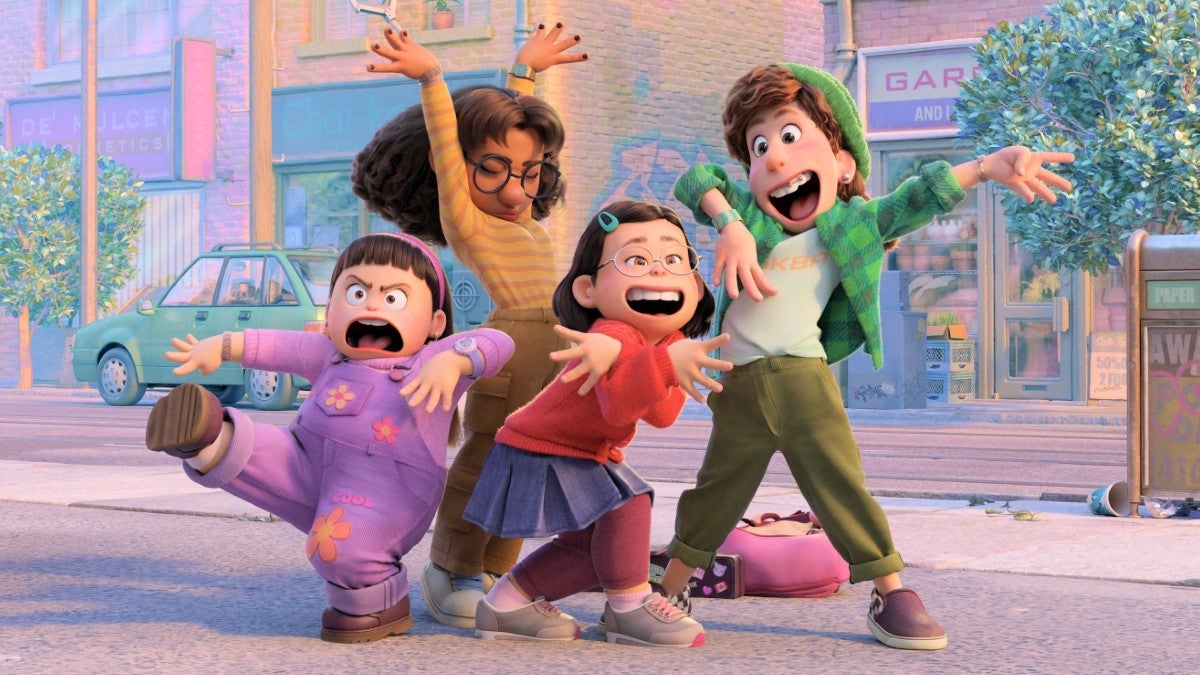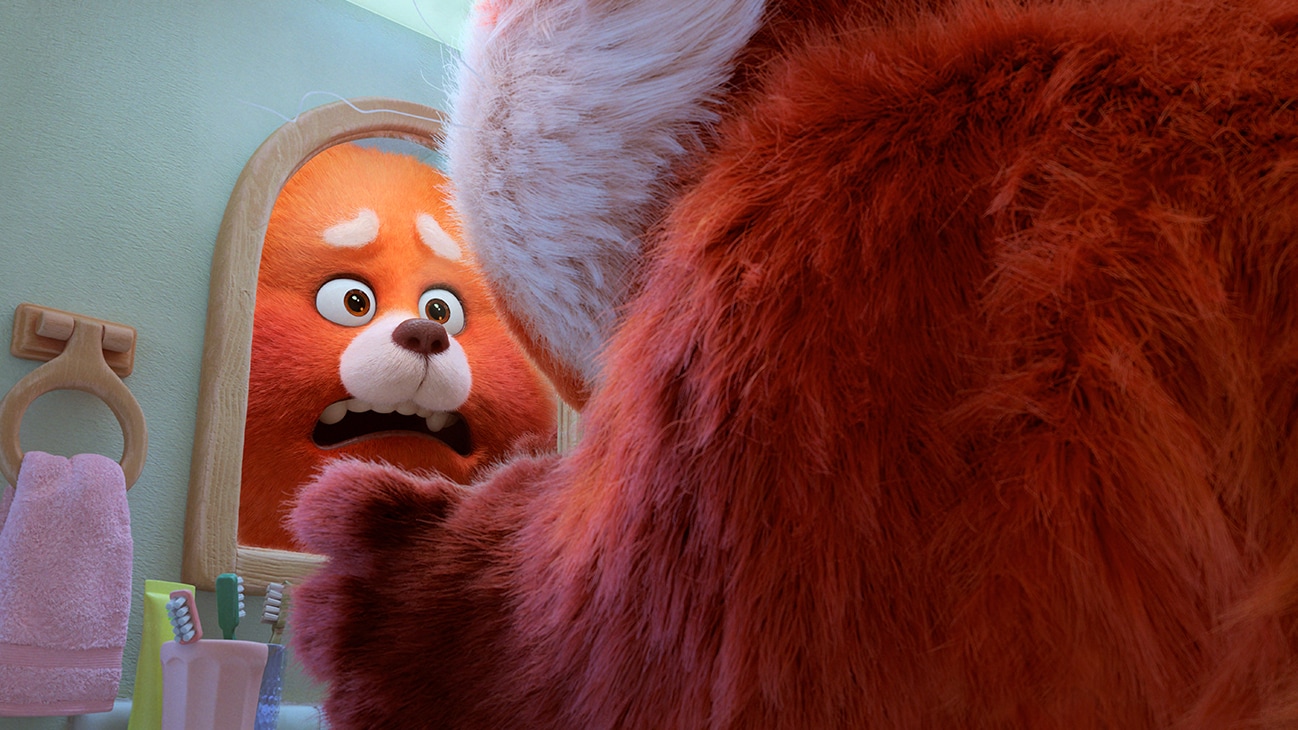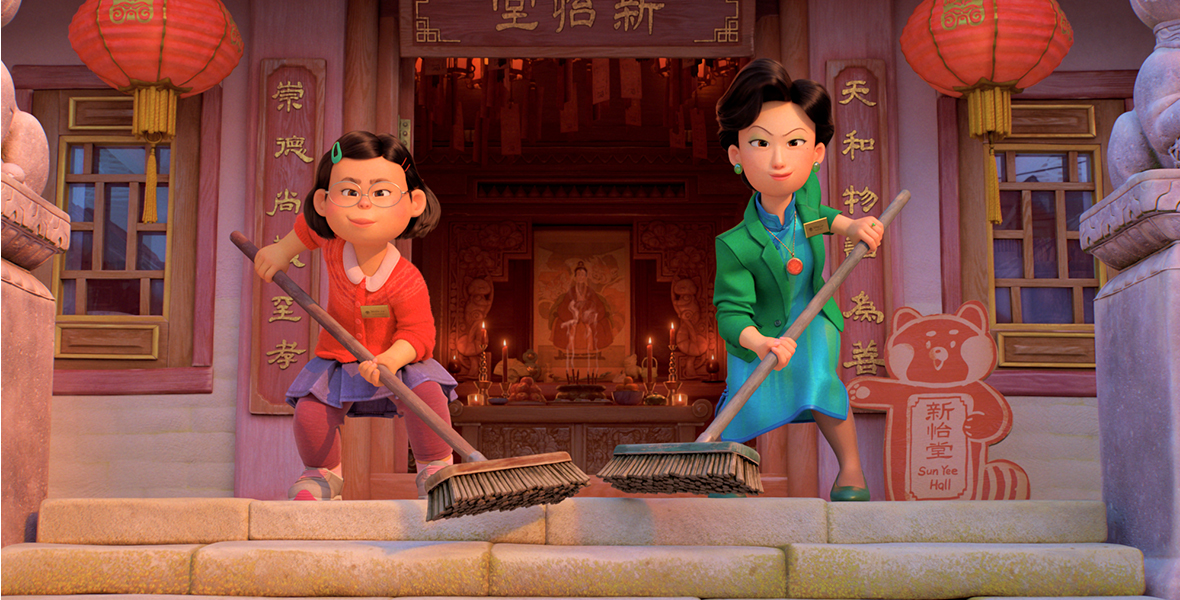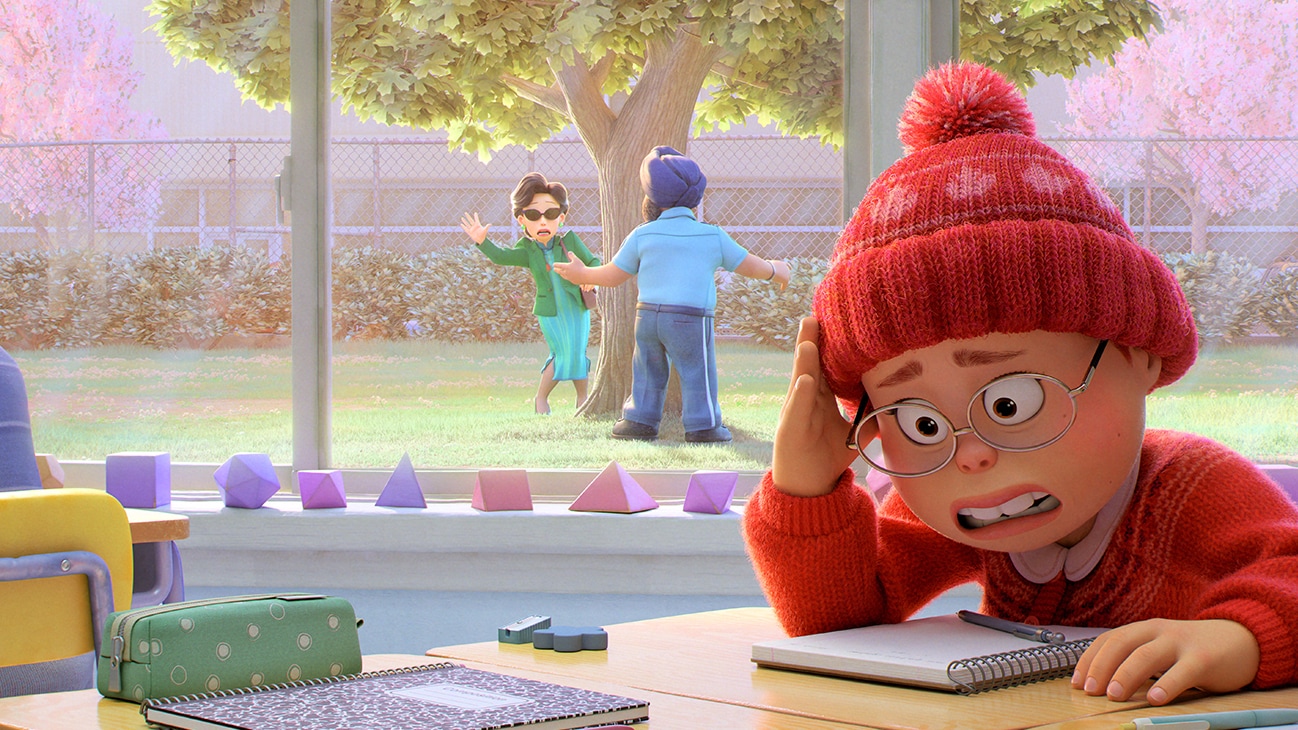Turning Red, directed by Oscar-winner Domee Shi, has truly blown me away. The film is a beautifully heartwarming exploration of love, family and friendship.
The main character is Mei, a Chinese-Canadian 13-year-old living in Toronto with her parents in the early 2000s. Mei initially leads a structured life with a rigid schedule and extremely high expectations of herself. She is a straight-A student, committed flute player and a tour guide at her family’s temple, all at an extremely young age. Mei’s commitment to perfection is instilled by her mother, Ming, who expects nothing less than devout precision and dedication from her daughter.
However, this all changes when Mei goes through a highly unusual transformation…she can change into a giant Red Panda. This ability is passed down through generations to all the women in Mei’s family. To Mei, it is more of an emotional and social metamorphosis rather than just a physical transformation. She begins to gain agency and learn more about her identity and relationship to her world.
I love this film because of how realistic and relatable her journey is. Her self-discovery is painful and awkward at times, but Mei eventually realizes that all of those moments, even the uncomfortable ones, are beautiful. She is not one-dimensional, but multifaceted and can be more than one thing. There is no need to sacrifice or hide a part of herself to please others.
Another reason why I loved this film was the much-needed Asian representation. Throughout Turning Red, the beauty and community found within Mei’s Chinese identity are celebrated. An example of this is her family-run temple, which preserves rich tradition and provides a place of community and connection within her neighborhood. The movie pays homage to Chinese food through a gorgeous animation sequence of Mei’s father cooking. Another heartwarming aspect of the film was its Muslim representation with several characters shown wearing hijabs.
The film also successfully tackles the heavy theme of generational trauma. In Turning Red, the pursuit of perfection is a behavior learned and passed down from Ming to Mei. This idea of perfection is toxic and extremely damaging to one’s self-worth and familial relationships. Ming learns to limit her emotional expression after hurting her mother while transforming into a red panda. After this incident, she forces herself to suppress her transformation abilities in hopes to please her mother. Ming then becomes her own mother, obsessed with controlling Mei.
Turning Red is a rare coming-of-age story that centers a perspective too often ignored. The film is a masterpiece of colorful and engaging storytelling about heavy topics with ease. Hopefully Turning Red will inspire the film industry to incorporate more representation into their movies. Turning Red is truly a triumph and is available to watch on Disney Plus.
Feature image via Amazon Adviser















